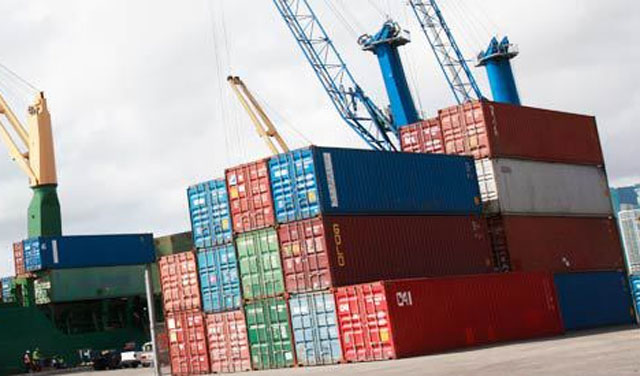- In FY 15-16, trade volume with China stands at $1.903 billion exports and $8.126 billion imports
Amid reduction in production and ill-planned negotiations with trading partners, the free trade agreements signed with different countries could not help reducing Pakistan’s trade deficit.
Though the free trade agreements (FTAs) and preferential trade agreements (PTAs) are usually signed on level playing fields with friendly countries, the case has been proved much different for Pakistan who is largely importing rather than exporting goods to the selected countries.
Despite the discouraging results of FTAs and PTAs so far, the country is also in negotiation with Turkey, Thailand, Iran and some others countries for signing trade agreements. As per the foreign trade data, Pakistan’s exports did not grow in comparison with imports from these countries. As a part of trade diplomacy, Pakistan has implemented preferential trade arrangements with 11 countries.
Pakistan has signed and implemented PTAs with three countries (Iran, Indonesia and Mauritius) and Mercosur, a sub-regional bloc whose full members are Argentina, Brazil, Paraguay and Uruguay.
According to the analysts, Pakistan started signing PTAs in the 1990s and accelerated the number of agreements after 2000. The negative impacts of such agreements emerged after 2006 when the level of production in the country began reducing resulting in the short supply of goods to the selected countries despite relaxation in the tariff.
The reduction in the level of production continued afterwards due to which not only the FTAs and PTAs failed to benefit Pakistan but the country also could not tap opportunities under GSP+ facilities in Europe, they believed.
“It is said that the consumers were facilitated through the FTAs, especially in the case of China, as they comparatively received products at reduced costs from the neighbouring country. However, the import of such items badly affected the balance of trade with the neighbouring country,” they added.
Apart from the supply constraints which ultimately benefited Pakistan’s trade partners, the lack of capacity to negotiate and analyse the impacts of FTAs and PTAs at the Ministry of Commerce was also one of the major reasons for the bad experiences regarding the agreements, analysts claimed.
According to a recent letter, available with Pakistan Today, forwarded to the federal government by Sindh Board of Investment, these trade agreements were meant to mutually benefit trading partners but Pakistan has not benefited from any of these.
“More specifically, FTA with China led to an increase in trade deficit from $2.9 billion to $4.1 billion; FTA with Malaysia led to an increase in trade deficit from $1.6 billion to $1.9 billion, and PTA with Indonesia led to an increase in trade deficit from $800 million to $1 billion,” the letter stated. As per the fresh data, Pakistan’s trade deficit with its largest trading partner China widened to $6.223 billion in the previous fiscal year. The volume of Pakistan’s overall trade with China was $10.029 billion in the fiscal year 2015-16, including $1.903 billion exports and $8.126 billion imports.
According to the analysts, FTAs should be ratified in a way that it supports manufacturing, foreign direct investment and exports from Pakistan. The government should bring down tariffs to zero for import of raw materials in Pakistan in the FTA instead of zero-rated import of finished goods.
Apart from the imbalanced trade with the countries (of FTA and PTA), the overall trade deficit has also widened to $23.4 billion in the last nine months (July 2016-March 2017) of the ongoing financial year due to a massive increase in the country’s imports and a decline in exports. The imports increased by 18.67 percent to $38.5 billion during July-March of FY2017 from $32.4 billion of the last year. However, the exports tumbled by 3.06 percent to $15.1 billion in nine months of the current fiscal year from $15.6 billion of the same period of the previous year.




